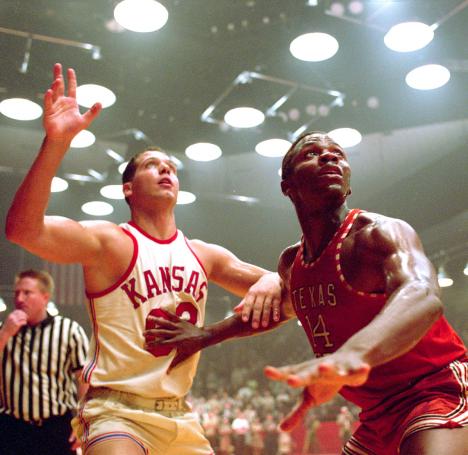With so many poor Hollywood attempts at making a dollar flooding the theaters this past month, and the unmistakable giants of CGI and violence hogging the spotlight, a less-marketed yet fantastic film is easy to overlook — and prejudge unfairly.
On Loyola’s campus, this writer has heard it all. “It’s just another inspirational sports movie.” “It’ll be Remember the Titans on the basketball court.” “Same story, white coach.” “When will Disney and Bruckheimer stop making the same movies over and over again?” You already know how it ends, so why see it? The list, depressingly, goes on.
If potential viewers take that sort of approach to this film, and decide under those pretenses to ignore Glory Road, then they are missing one of the best inspirational dramas Disney has produced in recent memory.
Based on the true story of the Texas Western University basketball team of 1965-66, and its problems as the first team in the NCAA to start an all-black lineup, this film features amazing acting and profound directing. Battling racism and bigotry among teammates and around the country, the players and their coach strive to find a way to deal with race in the 1960s South and still maintain their winning record.
Josh Lucas, who played the evil government worker in Hulk, appears this time as the racially color-blind Coach Don Haskins who cares only about talent. Having long forgotten what it means to be well-respected, he puts together a team of white and black players in order to produce a winning season – Featured among them is Loyola’s own James Olivard, who has plenty of scenes to his credit as Louis “Flip” Baudoin. In contrast to Lucas’ character is Jon Voight, playing the classic evil coach we love to hate. His character’s name is Adolph Rupp, a legendary Kentucky coach.
To be fair, the film does have plenty of pitfalls that are to be expected in a Disney production. The writing is poor at parts, and though Disney opted to include racial terms such as “nigger ball,” they also stayed true to Disney vocabulary with several instantiations of “heck,” “darn,” and “butt.” Such words have truly never had a place in a men’s locker room. The flow of the film has some questionable qualities as well. Main characters are all-too-easily shown the light in the fast progression from racial anarchy to racial acceptance. And yes, many do, indeed, know how it ends.
But the point of this film most certainly isn’t the end; rather, it’s the journey that leads them there. How do they deal with a crowd that waves the Rebel flag? How do they deal with racist referees? How do they come to accept each other? These are the features of the film that matter.
Yes, this film does have the same message as Remember the Titans. But that shouldn’t matter. When will Disney and Bruckheimer stop making the same movies over and over again? When the story no longer needs to be told.
Colin Lacy can be reaches at cjlacy@loyno.edu.






